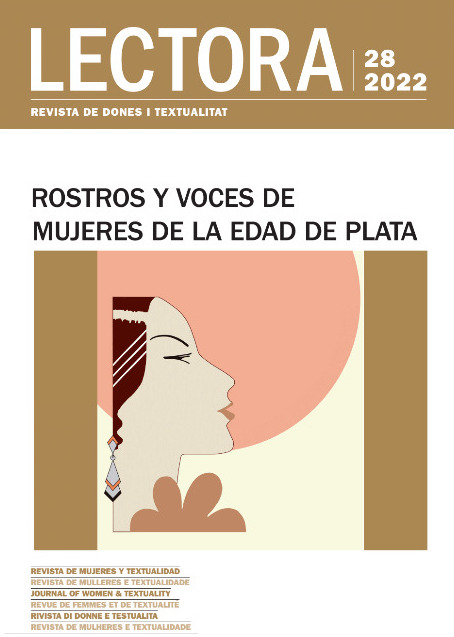A Female Neighbour in Whose Country? The Untold Story of Afia Begum and the Sari Squad
DOI:
https://doi.org/10.1344/Lectora2022.28.14Palabras clave:
Afia Begum, Sari Squad, Jeremy Corbyn, David Waddington, Harry Cohen, London, race relationsResumen
This paper is one of the first attempts to reconstruct the story of Afia Begum, wife —and later widow— of Abdul Hamid (a Bangladeshi immigrant in Thatcherite London), whose entry was cleared by the British Home Office in 1982, months before her husband died tragically in a fire in East London. Upon her arrival in the United Kingdom, Afia was told that her grant to stay in the country was no longer valid owing to the death of her husband; that she was now an illegal immigrant in Britain. In the process of the reconstruction, I also revisit the untold story of the Sari Squad, a group of Asian women who fought valiantly, though peacefully, to stop Afia’s deportation. Although Afia was deported on May 8, 1984, her case was heard in the European Court of Human Rights and debated in the European Parliament; in both forums, the highhandedness of the British Home Office was fiercely critiqued. By way of conclusion, I lay out a hermeneutic in which to read Afia’s story, in a literary sense, offering a skeptical stance to reading it in binary terms of success-defeat/victimization-survival of a female foreigner battling a racist state. In doing so, I draw upon Gayatri Chakravorty Spivak’s “connection between nationalism and reproductive heteronormativity”, to argue that the case of Afia’s deportation suggests that her nationality can only be —tragically— established by determining the citizenship of her husband; this ends up doubly othering and transcendentalizing her nationality, reducing her to her sociobiological reproductive heteronormativity, impregnated with the cryptic trace of her husband’s ghost which practically became the summum bonum of her deprived statehood.
Citas
Andrés, Rodrigo (2014), "Approaches to Approaching the Neighbor", Lectora, 20: 11-14. <https://revistes.ub.edu/index.php/lectora/article/view/10719>
"Asian Deportation Fought" (1984), Theory/Practice: News & Letters, 29 (5): 3.
"Asian Women Bound Over" (1983), The Times, 17/08/1983.
Bhabha, Jacqueline, Francesca Klug and Shue Shutter (eds.) (1985), Worlds Apart: Women Under Immigration and Nationality Law, London & Sydney, Pluto Press.
Burnham, Margaret A. (1988), "Monitoring the Police in the Aftermath of the Greater London Council", Social Justice, 15 (1): 116-122.
Castricano, Carla Jodie (2001), Cryptomimesis. The Gothic and Jacques Derrida’s Ghost Writing, Montreal, Kingston, London & Ithaca, McGill-Queen’s University Press.
Chatterjee, Arup K. (2021), Indians in London: From the Birth of the East India Company to Independent India, New Delhi & London, Bloomsbury.
Cohen, Harry (1984a), "Speech in House of Commons: Entry Clearance (Change of Circumstances)—HC Deb 07 March 1984 vol 55 cc854-6", Hansard. <https://api.parliament.uk/historic-hansard/commons/1984/mar/07/entry- clearance-change-of-circumstances>
—(1984b), "Speech in House of Commons: Afia Begum—HC Deb 11 June 1984 vol 61 cc735-42", Hansard. <https://api.parliament.uk/historic- hansard/commons/1984/mar/07/entry-clearance-change-of-circumstances>
Corbyn, Jeremy (1984), "Speech in House of Commons: Mrs. Afia Begum (Deportation)—HC Deb 08 May 1984 vol 59 cc738-41", Hansard. <https://api.parliament.uk/historic-hansard/commons/1984/mar/07/entry- clearance-change-of-circumstances>
Couper, Kristin and Ulysses Santamaria (1984), "An Elusive Concept: The Changing Definition of Illegal Immigrant in the Practice of Immigration Control in the United Kingdom", International Migration Review, 18 (3): 437- 452.
Derrida, Jacques (2000), Of Hospitality: Anne Dufourmantelle Invites Jacques Derrida to Respond, Rachel Bowlby (trans.), Stanford & California, Stanford University Press.
—(2005), "Fors: The Anglish Words of Nicolas Abraham and Maria Torok", The Wolf Man’s Magic Word, Nicolas Abraham and Maria Torok (eds.), Barbara Johnson (trad.), Minneapolis, University of Minnesota Press: xi-xlviii.
Healy, Pat (1984), "Angry Asians in Vigil Over Arrest of Woman", The Times of London, 04/05/1984.
"Immigration: The Daily Mail’s Double Standards" (1984), Searchlight: The Antifascist Monthly, 109: 17-18.
"Join the Sari Squad" (1983), Spare Rib, 138: 11.
Layton-Henry, Z. (1986), "Race and the Thatcher Government", Race, Government and Politics in Britain, Z. Layton-Henry and P. B. Rich (eds), London, Palgrave Macmillan: 73-99.
Paul, Anjali (1984), "Fighting for Their Rights: Asian Women Battle Immigration Laws", Sunday, 35: 62.
Phillips, Angela and Jill Rakusen (1989), The New Our Bodies, Ourselves, A Health Book By And For Women, London, Penguin.
Powell, Enoch (1968), "Speech at Birmingham, 20 April", Enoch Powell: Life and Views. <http://www.enochpowell.net/fr-79.html>
Reid, Martine (2014), "Flora Tristan: De la nécessité de faire bon accueil aux femmes etrangères", Lectora, 20: 107-117. Spivak, Gayatri Chakravorty (2009), "Nationalism and the Imagination", Lectora, 15: 75-98.
Welton, Alice (2016), "Sari Squad—the Afia Begum campaign", The Spectacle Blog. <http://www.spectacle.co.uk/spectacleblog/despite-tv/sari-squad-the-afia- begum-campaign/>
Descargas
Publicado
Versiones
- 2023-03-25 (2)
- 2023-03-25 (1)
Cómo citar
Número
Sección
Licencia
Los autores y las autoras conservan los derechos de autoría y otorgan a Lectora: revista de dones i textualitat el derecho de difusión. La obra estará disponible simultáneamente bajo una Licencia de Reconocimiento-NoComercial-SinObraDerivada de Creative Commons que, si no se indica lo contrario, permite compartir la obra con terceros, siempre que estos reconozcan la autoría y la publicación inicial en esta revista.Los autores y autoras son libres de hacer acuerdos contractuales adicionales independientes para la distribución no exclusiva de la versión de la obra publicada en la revista (como la publicación en un repositorio institucional o en un libro), siempre que se reconozca la publicación inicial en esta revista.Se alienta a los autores y autoras a publicar su obra en línea (en repositorios institucionales, temáticos o en su página web, por ejemplo) con el objetivo de conseguir intercambios productivos y hacer que la obra obtenga mayor difusión y citas (véase The Effect of Open Access, en inglés).




